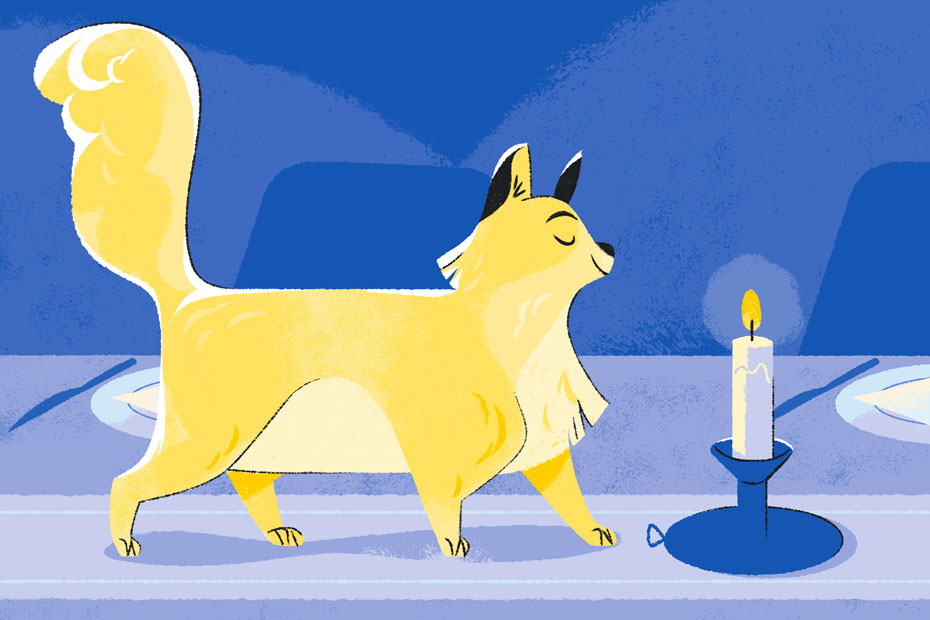11 Sneaky Fire Hazards that Could Be Hiding in Your Home


By Sarita Harbour • Published December 14, 2018 • 4 Min Read
How many preventable fire hazards are hiding in your home? If you’ve heard of a house fire caused by a careless mistake or thoughtless act, you may have thought, “That’s awful — but it could never happen to me.” The truth is, there are many potential causes of house fires that homeowners often overlook.
Here are eleven sneaky fire hazards that may be hiding in your home:
Never leave a burning candle unattended — snuff it out before leaving the room, or take it with you.
Never leave hair-styling devices (like curling irons or flat irons) sitting on a dresser, table or counter without disconnecting them. Turn your hot hair-styling tool off and unplug them after use.
Clothing, scarves, curtains or other material too close to a light, lamp, radiator, stovetop or other heat source could ignite and start a house fire. Check each room to ensure no flammable items are near potential heat sources.
Space heaters, especially older ones, can overheat, or ignite nearby flammable material to start a fire. Avoid using older space heaters, read the operating instructions, make sure there’s ample space around the heater, and don’t leave it unattended when it’s on.
An accumulation of soot and creosote may be all that’s needed to a start a chimney fire, which can easily grow into a house fire. Clean your chimney at least once a year before using your wood stove or wood-burning fire place.
According to the Red Cross, dryer fires are the cause of 90% of appliance fires. Clear lint from your laundry exhaust pipe, vents and lint trap regularly.
In Ontario alone, 18% of house/structure fires started as cooking fires. Make it a habit to turn off your stovetop or hotplate before leaving the room, even if it’s just for a few minutes.
Between 2012 and 2016, cigarettes caused 7% of structure fires. If a smoker falls asleep with a lit cigarette in their hand, it can fall to the floor, and catch on bedclothes or other flammable materials.
Too many electrical devices plugged into one outlet can overload it and lead to an electrical fire. Choose an electrical multi outlet tap that plugs into existing wall outlets, or have an electrician install more outlets.
Pesky rodents can be a danger if they build nests — made of dried grass and other flammable material — near heat sources, or anywhere sparks may occur. Keep your home rodent-free using traps, or with assistance from your local exterminator.
During the holiday season, whether you opt for a real tree or an artificial one, it’s necessary to take safety precautions. Make sure your tree is not close to open fires or heaters. Be aware that electrical failures or malfunctions can spark and ignite a tree. Do not overload electrical sockets with Christmas tree lights. And if you have a real tree be sure to keep it watered so that your tree does not dry and become brittle.
Be prepared for a house fire by ensuring your home is equipped with fire extinguishers and working smoke detectors. And don’t forget, home insurance may help protect your family from the financial damage of a house fire.
Make sure you have the right level of coverage for your home. Call 1-877-749-7224 to speak with an RBC Licensed Insurance advisor.
Get a free online quote* for coverage to protect you, your property, and your belongings from the unexpected.
*Home and auto insurance products are distributed by RBC Insurance Agency Ltd. and underwritten by Aviva General Insurance Company. In Quebec, RBC Insurance Agency Ltd. Is registered as a damage insurance agency. As a result of government-run auto insurance plans, auto insurance is not available through RBC Insurance in Manitoba, Saskatchewan and British Columbia.
This article is intended as general information only and is not to be relied upon as constituting legal, financial or other professional advice. A professional advisor should be consulted regarding your specific situation. Information presented is believed to be factual and up-to-date but we do not guarantee its accuracy and it should not be regarded as a complete analysis of the subjects discussed. All expressions of opinion reflect the judgment of the authors as of the date of publication and are subject to change. No endorsement of any third parties or their advice, opinions, information, products or services is expressly given or implied by Royal Bank of Canada or any of its affiliates.
Share This Article
Read This Next

Whatever You Need, We Can Help
Speak with an RBC Insurance Advisor: 1-888-925-0946 or Have an Advisor Call Me
Want to meet? Find an Advisor or Store